How to clean a mattress – keep your mattress looking (and smelling) like new with these expert tips
Keep your mattress looking – and smelling – as fresh as possible all year round

Lauren Bradbury

EDITOR’S NOTE: An earlier version of this article included a quote from a purported expert whose credentials we have not been able to verify. The quote has been removed. We regret this lapse in our verification process and have updated our internal protocols to reduce the risk of recurrence.
Knowing how to clean a mattress is an important piece of information everyone should have in their wheelhouse. Not only will this help to prolong the life of your mattress, but it will also ensure that you have a happy - and healthy - night’s sleep every single evening.
No matter whether you choose a memory foam mattress or a traditional spring mattress, the best mattress can revolutionise the way you sleep. But this bedroom addition isn’t cheap, which is why you want to make sure that you’re getting the most out of your mattress. So, cleaning it is vital.
‘There are no hard or fast rules on how often to clean your mattress,’ says Hannah Shore, Sleep Expert at Silentnight. However, there are some hard and fast rules on cleaning your mattress, and we’ve outlined them below.
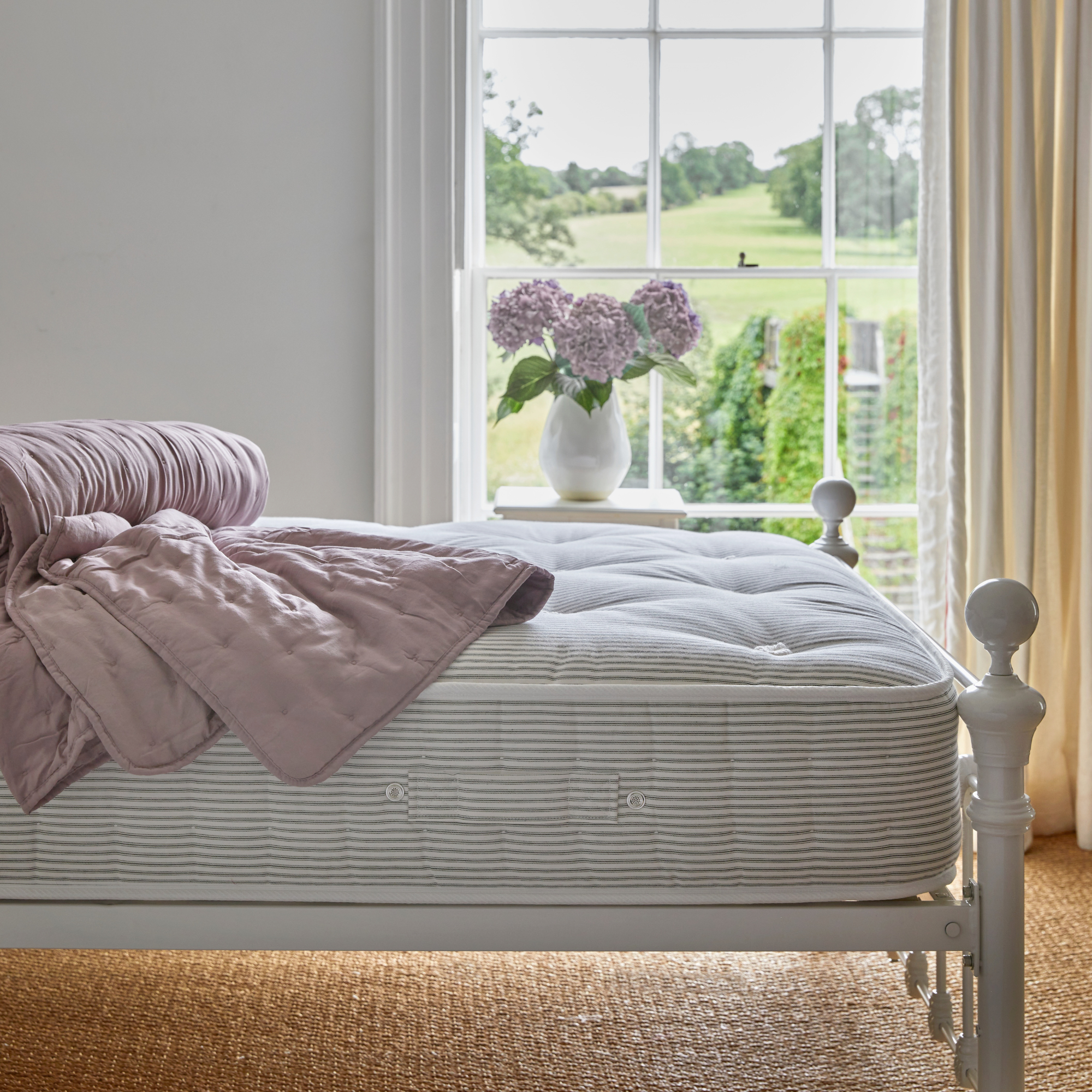
How to clean a mattress – step-by-step guide
‘In addition to bodily fluids and dead skin cells, on average, a mattress houses between 100,000 and 10 million dust mites – microscopic creatures that cause skin rashes, irritation and can potentially worsen allergy symptoms,’ outlines Tobin James, sleep ergonomics expert at TEMPUR. ‘It’s therefore vital to ensure you’re cleaning your mattress every six months.’
However, if you suffer from asthma or allergies, you may want to clean your mattress much more regularly. You can even do this on a monthly basis, if necessary.
1. Remove your bedding
It can be a good habit to get into giving your mattress a quick vacuum every time you change your bedding. But anytime you intend on cleaning your mattress – whether that be a deep or a spot clean – you’ll want to remove the sheets, pillowcases, duvet and duvet cover and any mattress protector before washing them.
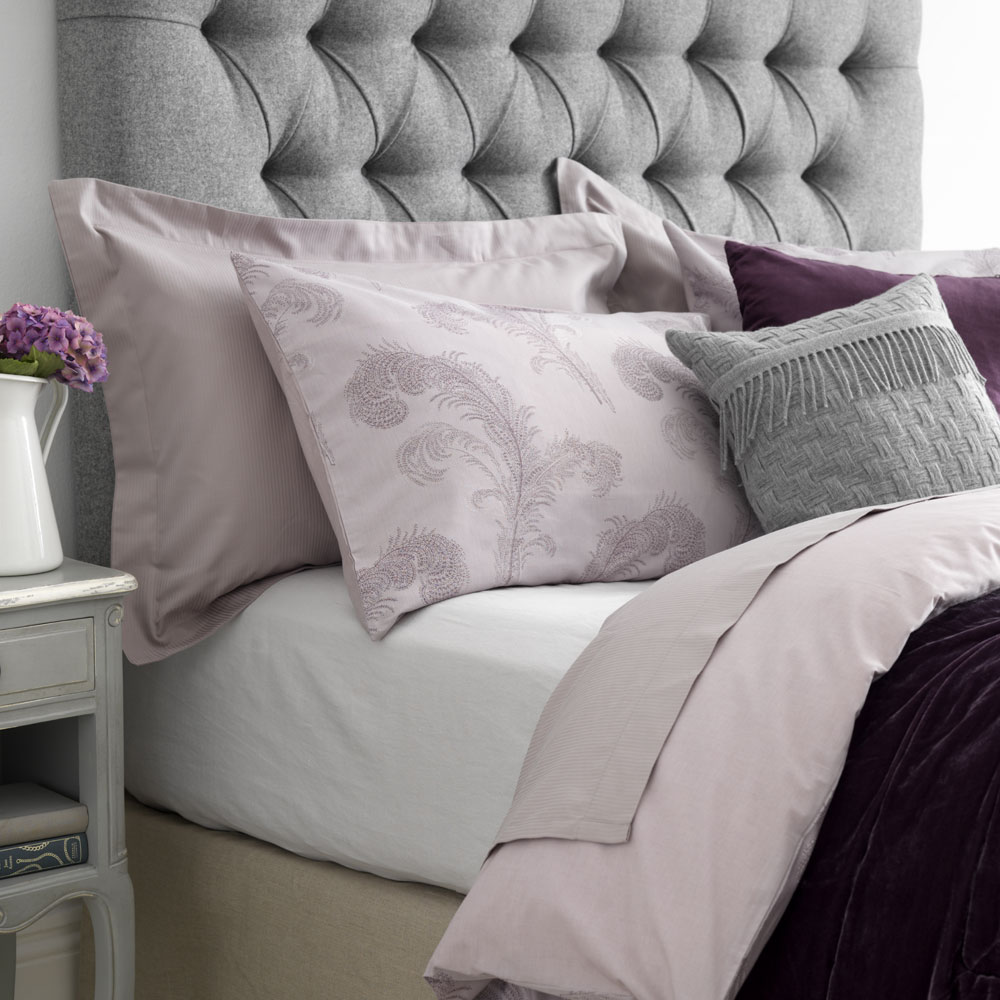
2. Vacuum the mattress
'In general, most mattresses are suitable for vacuuming,’ says Sophie Lane, Product Training Manager at Miele GB. ‘However, if in doubt it is advisable to check the care label or with the manufacturer to be on the safe side.’
Sign up to our newsletter for style inspiration, real homes, project and garden advice and shopping know-how
For example, if your mattress contains natural fillings, such as those in a sustainable mattress, you should not be vacuuming these ‘as this can displace the filings and pull the fibres through the fabric,’ informs Rebecca Mayes, Sleep Expert at Harrison Spinks. She suggests using a soft brush, instead, in this scenario.
It’s also ‘not advisable to use any attachment with a revolving beater bar, as they may cause damage to the fibres of some mattresses,’ adds Sophie.
In most cases, you’ll want to use an upholstery attachment on your vacuum cleaner, the best vacuum cleaners should all come with one. When vacuuming, pay particular attention to any seams or crevices as this can be where dirt, dust or debris tends to gather. And don’t forget to vacuum or clean your bed frame at the same time, as this will ‘stop dust depositing on your newly cleaned bedding when you remake the bed.’

3. Spot clean any stains
If you find any stains on your mattress as you go to clean it, spot-cleaning can be the best technique to help remove these. Essentially, you don’t want to soak your mattress or get it overly wet. This is especially true for memory foam mattresses, which should not be wet at all. ‘If it gets too wet it can encourage bacteria or mould to grow,’ relays Simba’s Product & Sourcing Director, Mary Love.
‘It is crucial that you proceed with caution and adhere to the principle of less is more,’ when spot treating, says Nigel Bearman, CEO and founder of Daily Poppins. ‘Depending on the stain and the mattress, you'll need to select the right stain remover.’
For biological stains, an enzyme cleaner can be used in combination with a clean white cloth. ‘Spray the cleaner onto the stained area, and then blot it with the cloth. Using a clean cloth, blot the stain again until it lifts after applying cold water,’ recommends Nigel. ‘It is important to use as little product and moisture as possible.’
Alternatively, you can also use a mix of dish soap and water, which can be lathered up into a foam, and apply this.
4. Eliminate odours with baking soda
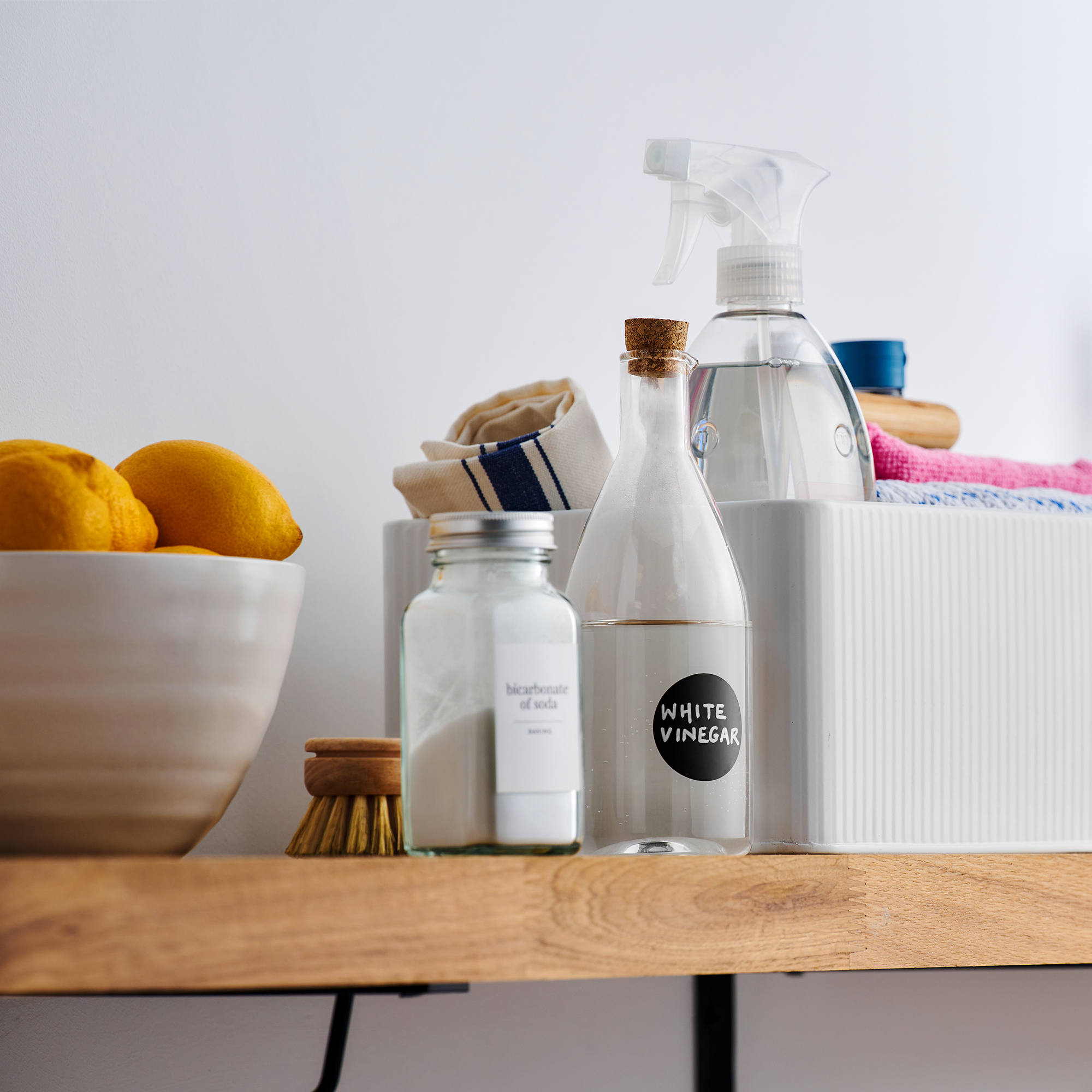
If you want to eliminate any lingering odours while you give your mattress a thorough clean, one cleaning staple will come in handy. And that is baking soda.
‘Baking soda is mildly abrasive and it’s also a natural deodoriser, so it can easily remove stains without damaging fabric or surfaces,’ says Zinus’ Brand Specialist Victoria Cedeno.
‘Sprinkle some baking soda on the mattress and let it sit for at least a few hours, overnight if possible. The longer you can leave it, the better,’ affirms Emma’s Sleep Expert Theresa Schnorbach. ‘Baking soda can help eliminate any odours, break down any debris and soak up any liquid that may be on the mattress. After letting the baking soda settle for a few hours, hoover the mattress again.’
5. Steam the mattress
Although this next stage isn’t essential, you could finish off your mattress cleaning adventures by steaming it. This is particularly beneficial if you want to get rid of bed bugs.
Most experts agree that a steam cleaner can kill bed bugs, and this process also has the added bonus of giving your mattress an extra clean, too. After all, steam cleaners will kill any lingering dirt, stains, or bacteria that may be stuck on your mattress.
In fact, any steam cleaner that goes above 48°C will kill bed bugs and bacteria, and as most of the best steam cleaners on the market reach 120°C, you shouldn’t have any trouble finding one.
How to keep your mattress in the best condition
If you want to ensure that you’re getting the most out of your mattress and keep it in the best condition, there are several ways to keep it feeling and smelling its best.
Protect your mattress with a cover
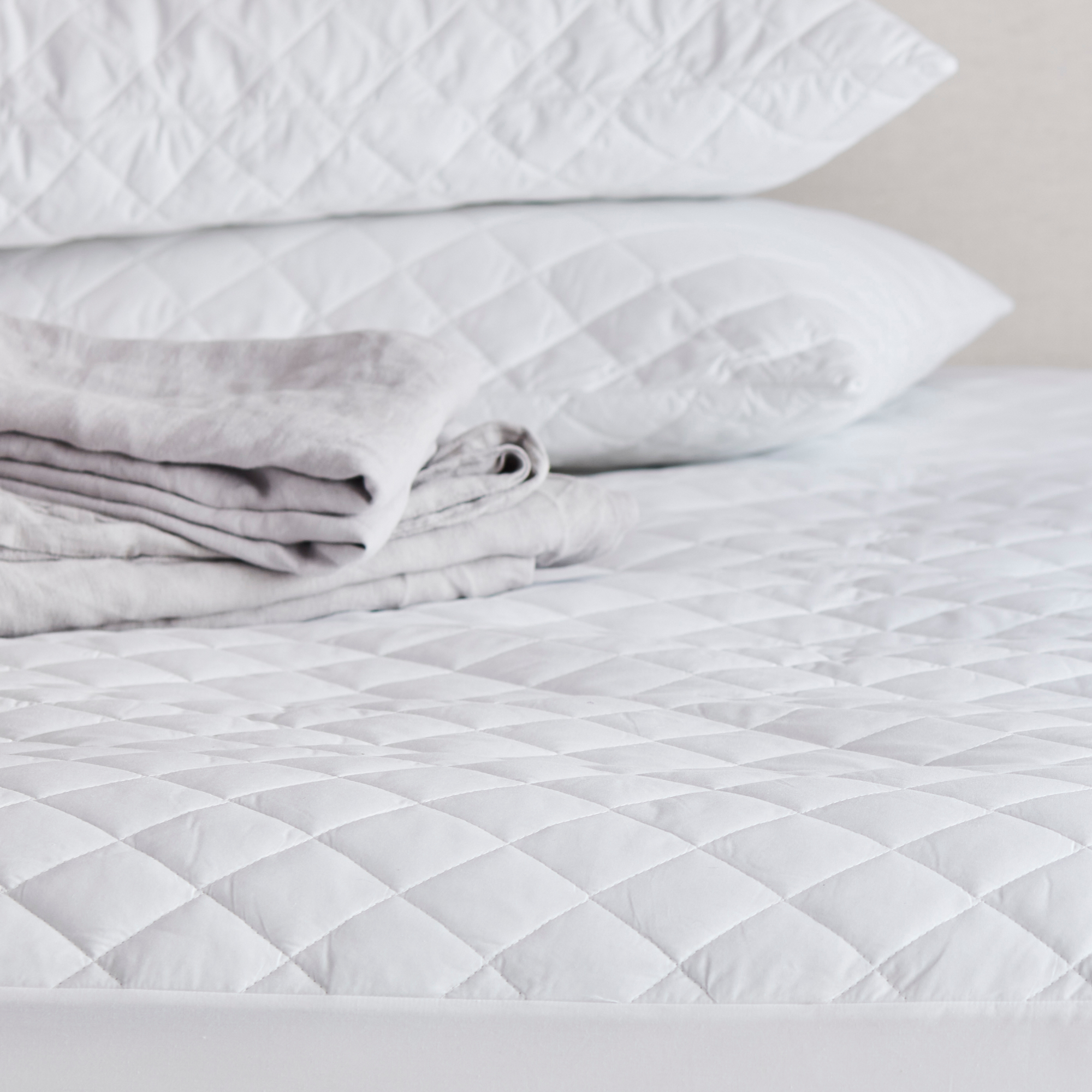
‘Mattress protectors can offer waterproof protection that shields your mattress from any spills, crumbs and other nasties and can be removed and washed separately, making cleaning easier and helping increase the lifespan of your mattress,’ suggests Theresa.
Alternatively, you could also try a mattress topper to protect the bed and offer an extra layer of comfort.
Let your mattress breathe

Airing your mattress every day will stop stale sweat smells permeating the surface, saving you the hassle of cleaning it later. Get into the habit of airing your bed every morning by drawing back the covers and letting your mattress (and sheets) breathe for 20 minutes before you go about making it.
Rotate your mattress
Rotating your mattress will not only make it easier to ensure that the whole surface area can be cleaned but it can also help prevent sagging.
‘It is also a simple process, simply rotate it from head to foot. The mattress should not be flipped unless it is recommended by the manufacturer - many mattresses come with only one side,’ says Nigel. And most mattresses should be rotated every three to six months.
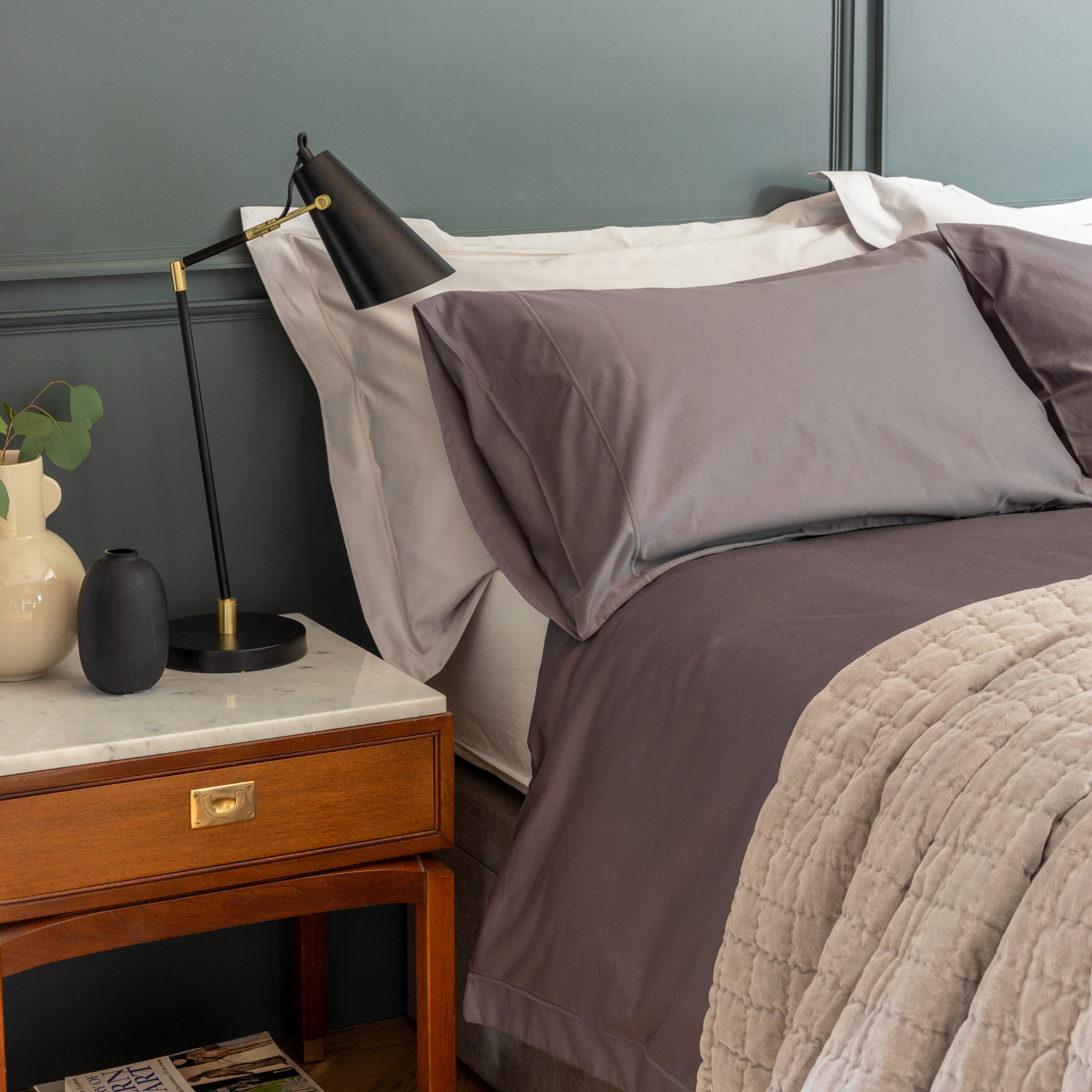
Wash your sheets regularly
What you put on top of your mattress can have a direct effect on its cleanliness - especially for a prolonged period of time. So, if you keep dirty sheets on your mattress for weeks on end, the bacteria, dirt, and moisture will no doubt seep into the mattress below.
This will ultimately impact the longevity of your mattress, which is why it’s always a good idea to wash your sheets regularly. Experts suggest washing your sheets at least once a week to keep them clean and fresh at all times.
Clean it frequently
We know we keep going on about it, but cleaning your mattress frequently is one of the easiest ways to keep your mattress in the best condition. This will ensure it’s free from strange smells and stains and keep it fresh.
However, you don’t necessarily have to do a full deep clean every week. Ideally, you should follow the steps above at least twice a year.
Avoid eating or drinking in bed
While the idea of having a lazy Sunday morning breakfast in bed sounds like a great idea, it could be doing your mattress more harm than good. That’s because the smallest stain or crumb can penetrate your mattress and leave it looking and smelling funky.
In fact, you might not even notice these crumbs or stains. But the small bed bugs, ants, and other critters in your house will notice them, and before too long, you may have an infestation that’s infiltrating your sheets and your mattress.
Spot clean stains as soon as possible
If you didn’t already know, stains become harder to treat the longer they’re left. And if you’re trying to keep your mattress in the best condition, the last thing you want to do is spend hours trying to tackle a stain you’ve left sitting there for months.
So, aim to spot clean stains as soon as you spot them, as this will make them much easier to remove. You can do this using a simple concoction of water and dish soap, as outlined above.
FAQs
What is the best way to clean a mattress?
The process of cleaning a mattress may sound complicated, but it’s actually very easy. To begin, you should strip all bedding from your mattress and pop them in the wash.
Then, vacuum the mattress to remove any loose debris or crumbs before spot-cleaning any stains with a mixture of dish soap and water. When you’ve done that, sprinkle the mattress with baking soda to eliminate any lingering odours and lick up any remaining sweat.
To finish, it’s always a good idea to clean your mattress with a steam cleaner. This will not only kill any bed bugs hiding in the mattress, but will also kill any leftover bacteria.
How to dry a mattress?
Too much liquid on a mattress can damage it, which is why it’s always beneficial to use a plastic mattress protector if a member of your family is prone to accidents. But if you accidentally drop a glass of water on your mattress, you can save it if you dry it quickly.
The best way to dry a mattress is to blot the mattress with paper towels or absorbent clothes. When you’ve removed as much water as you can, you should then lift up your mattress and stand it up against a wall - with the wet side facing into the room.
Then, either let it air dry by itself or try to speed up the process using a fan or one of the best dehumidifiers.
How often should you replace your mattress?
‘Over time mattresses can sag and become less supportive, even if they are great quality and looked after well,’ suggests Alison Hughes, Interiors Director at Coast Road Furniture. ‘An old, unsupportive mattress can even lead to back pain and poor sleep.’
Our experts concur that you should look to replace your mattress every six to ten years – depending on the type of mattress that you have.
Alison continues, ‘a hybrid mattress can last anything from five to eight years, while top-quality memory foam can have a lifespan of over ten years.’ And ‘continuing to sleep on an old mattress will do more harm than good and even damage your posture,’ according to Jonathan Warren, mattress specialist and director at Time4Sleep.
Time to sleep easy on your newly cleaned mattress.
Tamara was Ideal Home's Digital Editor before joining the Woman & Home team in 2022. She has spent the last 15 years working with the style teams at Country Homes & Interiors and Ideal Home, both now at Future PLC. It’s with these award wining interiors teams that she's honed her skills and passion for shopping, styling and writing. Tamara is always ahead of the curve when it comes to interiors trends – and is great at seeking out designer dupes on the high street.
- Lauren BradburyContent Editor (House Manual)